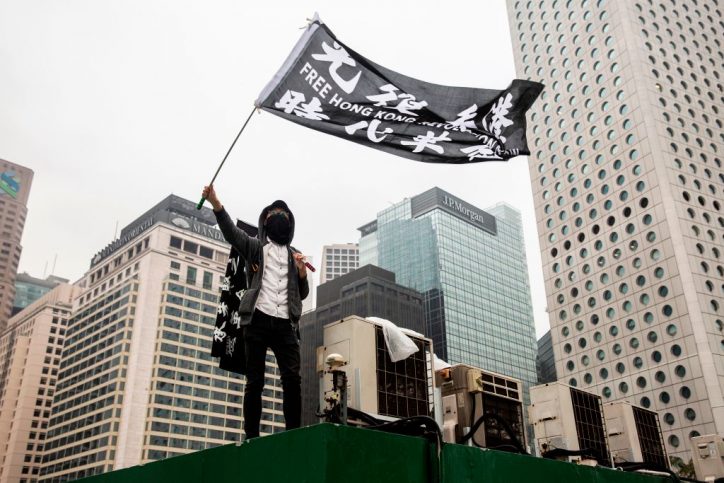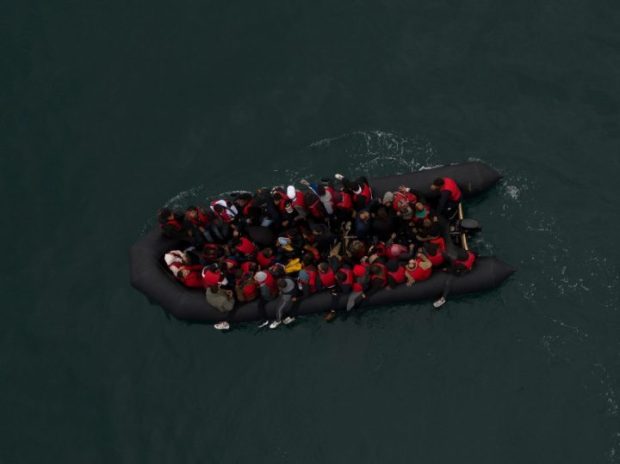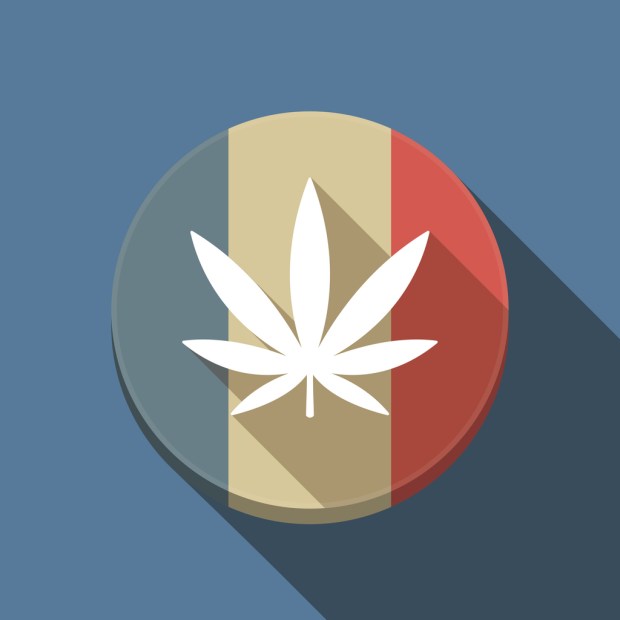Last week Carrie Lam, the embattled chief executive of Hong Kong’s increasingly beleaguered and unpopular government, deplored the latest round of protests against her administration. “Selfish” protestors, she declared, had “ruined” Christmas for millions of ordinary Hongkongers. Doubtless some of the territory’s citizens agreed with her but, having just returned from spending Christmas in Hong Kong there was little obvious sign that her appraisal of the latest round of demonstrations was either correct or the view of the majority of Hongkongers, silent or not. Riot police were much in evidence but then they always are in Hong Kong these days.
Tomorrow may prove a different matter. Hundreds of thousands of Honkkongers, not all of them young by any means, are expected to march through the city demanding that Lam’s government finally begins to listen to their demands. “Glory to Hong Kong: revolution of our times,” they say and they may be right.
This is not simply a matter of now or even of next year. It is a struggle for the long-term; a contest to determine what kind of future, if any, Hong Kong has. And it is something more than just that, since it is also an argument about the kind of China there will be in the future too. As such, what happens in Hong Kong does not stay in Hong Kong; it leaches into mainland China too and, from there, to the rest of the world. For we are all interested in China’s future, one way or another.
The argument over the now-withdrawn extradition treaty was merely a symptom of a much more telling battle, not its cause. The protestors’ true demand is universal suffrage and, failing that, at the very least a guarantee that the Basic Law enshrining Hong Kong’s special status within China – “one country, two systems” – is extended beyond its current sunset clause in 2047. There is a sense, palpable at that, of this being a defining moment in Hong Kong’s development. If a stand is not made now, when might it be? Only, perhaps, when it becomes too late to make a stand at all.
And of course it is a question of identity too. The young are much more likely to identify as Hongkongers than their grandparents’ generation were. Preserving that distinction and preventing their privileges from absorption into a greater China is at its heart struggle for Hong Kong to remain Hong Kong.
So, whatever you may think about the violence that has attended some of the protests – notably the 13 day siege at Hong Kong Polytechnic – there is ample bravery on display too. The students and their fellow travellers are wholly aware of the nature of the regime against which they protest and yet, despite that, or perhaps because of that, still they come. They do so even though you feel, inchoately but deeply, that it will not, cannot, end well for them.
That scarcely means tanks rolling in to Kowloon and Causeway Bay. The Chinese state has quieter means of repression than that. But it does leave you thinking that something profound is happening in Hong Kong right now. Beijing cannot afford to lose but nor, as matters become evermore desperate, can the protestors fold their umbrellas. A crisis, still greater than that of 2019, looms in 2020.
The outside world looks on with feigned concern. When push comes to shove, we know we won’t do very much. China is too important, too large, and too powerful, for that. Moreover, China does not forget and, in any case, has built a network of, in essence, client states to ensure no censure will be forthcoming from the general assembly of the United Nations. Even if it had not done so, European states – including the United Kingdom – have no desire to poke the Chinese dragon. Chinese money is too vital to risk that.
The protestors understand this too, of course. They are on their own and they know it. And, again, still they come. Speak to young Hongkongers and you find a grim determination that seems like something close to heroism. Even those youngsters who have travelled from the mainland to study at Hong Kong’s universities accept the truths of a complicated reality. They are, mostly, doggedly loyal to Beijing’s line while at the same time appreciating and enjoying the greater freedoms afforded to them in Hong Kong. This is a psychologically awkward position to maintain; a kind of Mandarin antisyzygy.
The winds of winter are not just blowing from the north, either. They come from the west too. Earlier this month Xi Jingping praised the government of Macau for introducing a new law making it an offence to “disrespect” the Chinese flag. This, he said, was a demonstration of how Macau has “correctly exercised its high degree of autonomy”.
In a better, or braver, world the oppression, incarceration, and re-education of a million Uighurs in western China would be considered one of the two or three most important, pressing, stories on the planet. For it too, and the shrugging, helpless reaction to it is a leading indicator of the reality of today’s world and, I suspect, tomorrow’s too. The world has, collectively, decided it cannot live without China and it is determined to turn a blind eye. But no amount of looking the other way will make the problems disappear; the situation is likely to get very much worse before it can get better.
If that’s a despondent note upon which to end the year, there is one happier conclusion to be reached for. Francis Fukuyama was right. “The End of History?” has fallen out of fashion and favour, in part because it has so often been so thoroughly misunderstood. History continues, of course, and the rise of authoritarian “alternatives” to liberal democracy is a clear trend. Freedom House report, once again, that this has been a backsliding year for global liberty.
But, in the long-term, which is to say in the judgement of history, Fukuyama’s thesis remains intact. Liberal democracy, for all its flaws and compromises and muddles and irritations, is still the best, most powerful, idea there is. No alternative, whether in the middle east or the Orient, Russia or sub-saharan Africa, has yet replaced it; no alternative means of organising society and government has yet proved capable of inspiring genuine worldwide enthusiasm. It is the last, best, hope there is and, in that respect, an idea with more life in it than we might, in moments of weakness or pessimism, think.
Liberal democracy – or at least a version of it – is what the students and citizens of Hong Kong are demanding. A better way; a brighter future; a new world. When they march tomorrow, and in the days and weeks and months to come it might be worth remembering that. And, having remembered it, give them, at the very least, your best wishes and your support. For their struggle is not theirs alone. A revolution of our times? Why, yes, it just might be that.
Got something to add? Join the discussion and comment below.
Get 10 issues for just $10
Subscribe to The Spectator Australia today for the next 10 magazine issues, plus full online access, for just $10.





















Comments
Don't miss out
Join the conversation with other Spectator Australia readers. Subscribe to leave a comment.
SUBSCRIBEAlready a subscriber? Log in